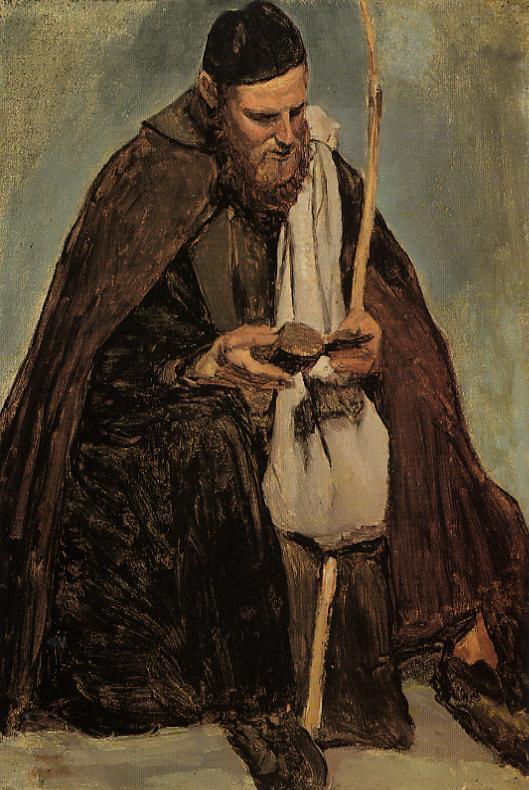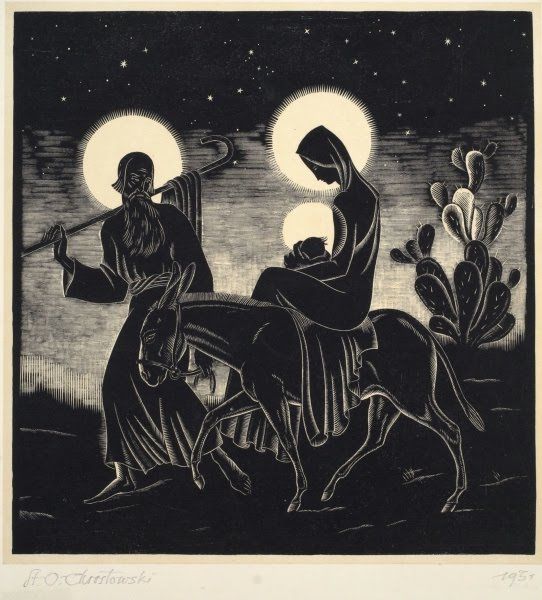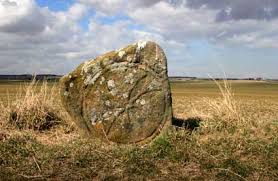Pentecost Sermon June 2017 All Saints Church, St Andrews
“But Moses replied, “Are you jealous for my sake? I wish that all the Lord’s people were prophets and that the Lord would put his Spirit on them!”
Today is a great festive day, the Day of Pentecost, commemorating and celebrating the coming of the Holy Spirit upon the Apostles and the Blessed Virgin, as well as the larger group of men and women believers who were with them; we are 50 days after Easter, and indeed the culmination of Eastertide; Pentecost shows us the coming of the Advocate and Consoler whom Christ promised. We pray for this continuing presence of the Spirit in ourselves, we pray like Moses that God the Holy Spirit may come and settle upon all of us, and that we will recognize and welcome this Divine presence in our lives. This feast is the culmination of the first Novena, the great time of expectant prayer, the nine days between Ascension and this day, the patient and expectant and hopeful model of all prayer to the Holy Spirit, that He will come upon us; for we are not left as orphans or bereft, although admittedly sometimes it is hard to remember that. As some of you may know about me by now, I never come to a sermon or feast day alone, but rather like to spend this time with great figures from the Tradition, to allow them to help me understand the meaning of these great events of salvation history, replayed over and over again before us in the Church’s liturgical year, holding out to us the hope of new insights and personal, ecclesial and, perhaps we hope, societal renewal.
Today I bring three friends with me, primarily Gregory the Great and two great poets, John of the Cross and Gerard Manley Hopkins, to help me and I hope all of us to spend a few minutes reflecting on this meaning of this great mystery of the Descent and abiding presence of the Holy Spirit. For it is indeed a marvelous thing, and as Gregory put it over fourteen centuries ago when he preached on this very feast, which he ranked equal in importance to the celebration of the Incarnation, in Old St Peters, to the people of Rome, the Holy Scriptures, the source of our faith and tradition, are full of stories of its transformative power! Gregory’s deep delight in the work of the Spirit I think should be our delight:

“It is my delight to lift up eyes of faith to the wonders of our Creator; and here and there to dwell upon the Fathers of both the Old and New Testament. I behold with these same eyes that were opened by faith, David and Amos and Daniel and Peter and Paul and Matthew, and I am moved to consider how great, as Creator, is the Holy Spirit, but in my reflection I fall far short. For it is He who inspires the youthful harpist, and He who has created the Psalmist. He moves the soul of The herdsman plucking wild figs, and makes him a prophet. He enters into a young boy, disciplined in spirit, and makes him a judge. He enters into a fisherman, and makes him a preacher of the Gospel. He fills a persecutor of the Church, and makes him the Doctor of the Gentiles. He fills a publican, and makes of him an evangelist. What power of creation has this Sprit! As He touches a soul he teaches it; and simply to have touched is to have taught it. For as his light illumines it, the human spirit of a sudden changes; it rejects on the instant what it was, and shows itself at once as it was not.”
We pray for the gifts of the Holy Spirit, gifts that were given and possessed in full by Christ, as detailed by the prophet Isaiah:
The Spirit of the LORD will rest on him—
the Spirit of wisdom and of understanding,
the Spirit of counsel and of might,
the Spirit of the knowledge and fear of the LORD—
It is a wondrous thing that Christ fully possesses these gifts. But the whole purpose of the Incarnation, of the Passion, Resurrection and Ascension, the great truths and events of the life of Jesus, is that we too are now a part of it; these gifts and the life they make possible are for us, his adopted brothers and sisters; they are OUR destiny too. Thus we can and should pray, as the great medieval hymn puts it, to be touched by the “digitus Dei”, the finger of God, a phrase implying both pointed focus and intimacy. We traditionally enumerate these gifts of the spirit as sevenfold; they help transform the creed we have learned, the scriptures we have read and heard so often, to make them for us personally living and transformative teachings, that effect us to the very marrow of our existence! Our hymns today, deeply as they draw upon scripture and the liturgical hymns and sequences of the ages, demonstrate that. These gifts I think should be named today, emphasizing how these gifts transform us and unite us ever more closely to Jesus:
1) the gift of wisdom, enabling us to relish spiritual things more than material ones;
2) the gift to understand God and his works, the desire to understand what the life and words of Jesus mean in our own lives.
3) the gift of prudence, enabling us to follow in Christ’s footsteps and avoid bad zeal;
4)the gift of strength: to withstand so many temptations; and the fortitude to face the morning news;
5) the gift of knowledge: to distinguish good from evil by the light of Christ’s holy teaching;
6) the gift of piety: to clothe ourselves with charity and mercy;
7) the gift of fear of the Lord: to withdraw from all ill-doing and live in attentive reverence and awe of the eternal majesty.
How these gifts change us, sometimes in an instant, but also over the course of our lives! There are so many ways to describe the Spirit’s work and presence, the depths of this mysterious work are so profound, that the bible needs to use multifold imagery that is not always in our day to day lives and experience obviously compatible; thus the Spirit, Jesus teaches us in today’s Gospel, is flowing and living water, nourishing and giving life abundantly, something anyone can understand, and makes sense both for fishermen and for desert dwellers. It also can be the power of the formidable storm, unable to be tamed, as anyone who has been out in a boat, or walking along a shore in the East Neuk in a gale, can attest. Speaking of wind, It can indeed be a fierce wind, or in turn a breeze that cools us when we need refreshment, or a gentle almost imperceptible breath, like Hildegard of Bingen named herself, a feather floating on the breath of God; or, indeed a descending dove, or a power that gives us the wings of eagles. The poetic voice of Gerard Manley Hopkins expresses it unforgettably, with vivid imagery of the Holy Spirit as a dove of warmth, solicitude and power::
“And for all this, nature is never spent;
There lives the dearest freshness deep down things;
And though the last lights off the black West went
Oh, morning, at the brown brink eastward, springs —
Because the Holy Ghost over the bent
World broods with warm breast and with ah! bright wings.”

But indeed the Holy Spirit can also be Fire, so powerfully set forth in the reading from Acts today. Fire is an amazing thing. I learned that the first time I put my hand near it as a child, but also learned it had other properties joined with gentleness, as my mother put a needle in flame and then removed a splinter from my finger. Fire can melt mountains and planets; it can illuminate a dark room; fire purges and purifies, fire above all gives us warmth, allows us to feel comfort and hope and restore a sense of well being. As John Wesley put it once very famously, this Spirit warms the heart, giving us new life and a new birth, new ways of seeing and being, where ideas and doctrines we have heard countless times before take on a new life and power within us.
And to what end are we transformed by this Fire? Why does this Great Guest, as Gregory the Great puts it, come to dwell in our hearts, to make us His very Temple as St Paul says? He comes, as His name implies, to make us Holy, to bring and instill within us what the theologians call sanctifying grace, to conform us to the Image and Likeness of God, to unite our hearts with the Heart of Jesus. As St John of the Cross beautifully articulates in his sublime and incomparable poem, The Living Flame of Love, this Holy Spirit is not merely interested in a superficial, merely notional or intellectual presence within us, but wants to do all within us that the image of fire implies:
- O lamps of fire!
in whose splendors
the deep caverns of feeling,
once obscure and blind,
now give forth, so rarely, so exquisitely,
both warmth and light to their Beloved.
- How gently and lovingly
you wake in my heart,
where in secret you dwell alone;
and in your sweet breathing,
filled with good and glory,
how tenderly you swell my heart with love.

Because, my friends, all of these gifts must lead to Charity. The Holy Spirit is God and God is Love; he comes to dwell among us to have us share in the Divine Life of Love. That is what these gifts are for, that is what sanctifying grace is for, that is where this transformation should be leading us, and not just us, but ourselves along with those Scripture calls our neighbors. We are not orphans, nor individuals, alone in the world and the vast universe, without hope or comfort. We are not alone, and will not be alone. This Holy Spirit lights our way, it warms us and nourishes us, it lights our way home. To conclude with the words of Gregory the Great, preached so many centuries ago, to me most movingly summing up the message of this feast both with regard to our lives here and now, as well as our eternal destiny:
“Let us then, dearest brothers and sisters, love our neighbor. Let us love him who is close beside us, that we may then come to love Him Who is far above us. Let the soul practice toward its neighbor, what it may offer up to God: so that it may merit to enjoy both God and its neighbor forever. Then shall we reach to that joy of the heavenly throng, of which we now receive a pledge in the Holy Spirit. Let us press forward with all our heart to that end in which we shall have joy without end. There we shall rejoice in the Holy company of the Blessed. There secure happiness, there untroubled rest, there true peace, shall no more be left with us, but shall be given to us by our Lord and Savior Jesus Christ, Who with the Father and the Holy Ghost liveth and reigneth for ever. Amen.”























